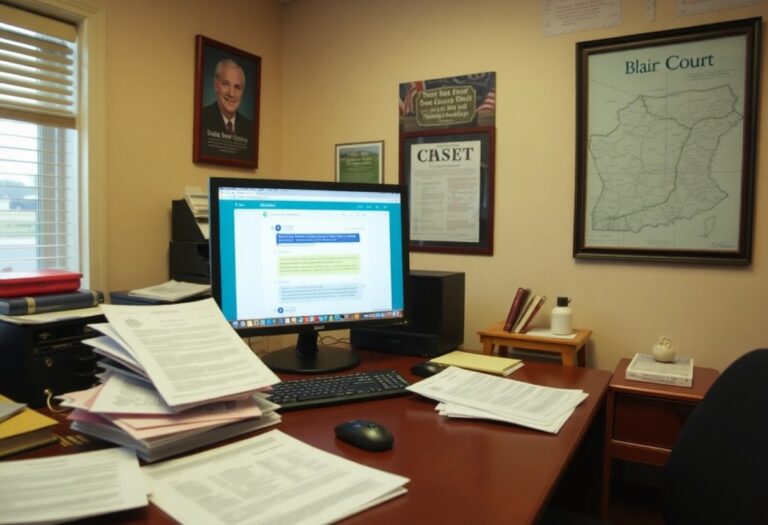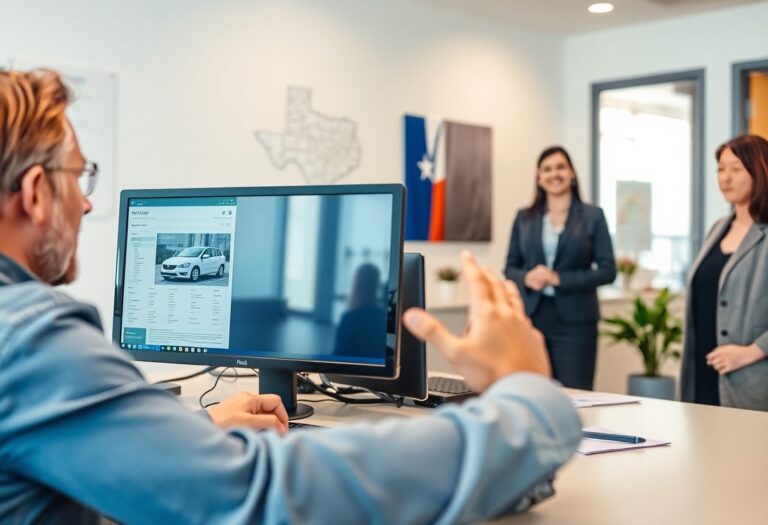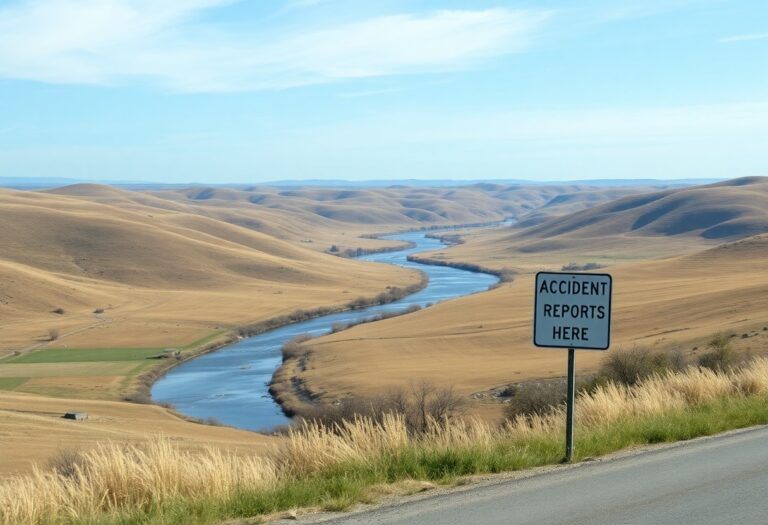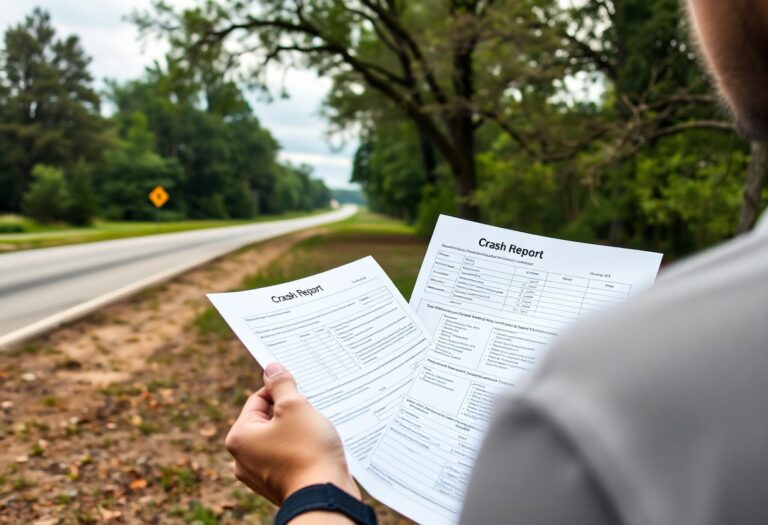Vermont is known for its beautiful landscapes, but unfortunately, accidents can happen anywhere, including Franklin County. If you find yourself in a car accident, getting your accident report is vital for insurance claims and legal matters. In this guide, you’ll discover step-by-step instructions on how to efficiently obtain your report, including important contact information and tips to expedite the process. Don’t let bureaucracy slow you down; take control of your situation and ensure you have the documentation you need.
Understanding the Importance of Your Car Accident Report
Your car accident report serves as an official account of the incident, detailing vital information such as time, location, and parties involved. This document often holds the key to understanding liability and establishing the facts surrounding an accident. In many cases, it can significantly impact the next steps you take, such as legal proceedings and insurance claims, making it indispensable for your personal records and any follow-up actions.
Legal Implications: Why You Need It
Obtaining your car accident report is necessary when navigating legal matters. This document provides an unbiased narrative, which can be vital in determining who is at fault. Courts often rely on detailed reports to make judgments in personal injury lawsuits. Without this official record, you risk being unable to substantiate your claims, potentially compromising your case.
Insurance Claims: How the Report Affects Your Coverage
Your car accident report significantly influences your insurance claim process. Insurers use the details to assess liability and coverage entitlements. If the report indicates that you were not at fault, your coverage will likely respond favorably. Conversely, if it identifies you as responsible for the accident, your premiums may increase, or your claim could be denied altogether.
The impact of the car accident report on your insurance claim cannot be overstated. For instance, if the report clearly establishes that the other driver was at fault due to reckless behavior or driving under the influence, your insurance provider can seek recovery from the at-fault party’s insurer. A detailed report can also streamline the claims process, leading to quicker resolutions and settlements. In contrast, gaps or inaccuracies within the report might leave you battling for compensation longer than necessary, causing undue stress and financial strain.
Navigating the Franklin County Report Retrieval Process
Successfully obtaining your car accident report in Franklin County requires understanding the local procedures. Different agencies play specific roles in this process, ensuring that you can access the necessary documentation smoothly. Whether you prefer a more digital approach or visiting in person, knowing the options available to you will streamline your retrieval experience.
Where to Request Your Report: Local Agencies
Your first step in acquiring a car accident report is to contact the appropriate local agencies in Franklin County. Typically, the report can be requested through the police department that handled the accident or the Vermont State Police, depending on which agency was involved. Be sure to check their official websites for exact procedures, fees, and contact information.
Online vs. In-Person Requests: Pros and Cons
Each method of requesting your accident report—online or in-person—has its advantages and disadvantages. Assessing these can help you decide which approach works best for you.
Pros and Cons
| Pros | Cons |
|---|---|
| Convenient, can be done from home | May have processing delays |
| Available 24/7 | Requires internet access |
| No need to travel | Potential technical issues with the website |
| Faster for simple requests | Limited assistance available |
| Can usually pay online | Fees may vary online |
| Reduce the risk of spreading illness | Authentication needs to be completed |
| Easy access to multiple records | Less personal interaction |
In-person requests might be beneficial if you need immediate assistance or have specific questions regarding the report. Interactive dialogue with agency staff can often clarify points of confusion and expedite the retrieval process. However, this approach requires travel and may involve waiting in lines, especially during peak hours.
Required Documentation: What You Need to Bring
Gathering the right documentation before requesting your report is vital. Typically, you will need a form of identification, such as a driver’s license or state-issued ID, and information about the accident including the date, location, and involved parties. Having this information ready will expedite the process significantly.
When you’re preparing to retrieve your car accident report, ensure you have all necessary documents on hand. Additional items like an accident report number or any pertinent case numbers can enhance the efficiency of your request. Not only will this save time, but it will increase the likelihood of a smooth retrieval process at the agency’s office or online platform.
Common Delays and How to Avoid Them
Delays in receiving your car accident report can stem from various factors, often causing frustration for individuals seeking timely information. Requests may take longer than anticipated due to incomplete paperwork, discrepancies in accident details, or high-volume request periods that strain the system. Being aware of these pitfalls allows you to better navigate the process and avoid unnecessary inconveniences that could hinder your claim or personal records.
Understanding Processing Times
Processing times for car accident reports in Franklin County vary widely, typically ranging from a few days to several weeks. Factors influencing this duration include the complexity of the accident, the number of parties involved, and the current workload of the reporting agency. A deeper understanding of these elements can help set your expectations accurately as you await your document.
Steps to Expedite Your Request
Expediting your request for a car accident report involves proactively ensuring that you provide all necessary documentation and accurate details on your first attempt. Submitting your request via online portals often speeds up processing times compared to traditional mail. Additionally, ensure that you include any specific details related to your case, such as the report number or the date of the incident, which can significantly reduce wait times and facilitate a faster response.
To further expedite your request, consider calling the relevant department in advance to clarify what specific documents are required, or if there are any fees involved. By gathering this information beforehand, you can avoid potential rejections or requests for additional information that could delay your report. Additionally, checking online for any status updates related to your request can save you the hassle of waiting in uncertainty. By following these steps, you enhance your chances of receiving your car accident report in a timelier manner, allowing you to focus on what truly matters—moving forward.
What to Do If Your Report Contains Errors
Errors in your car accident report can lead to significant challenges, especially when it comes to insurance claims or legal matters. If you spot discrepancies, take immediate action to rectify them. Ensure that the information is accurate and reflects the circumstances of the incident accurately to avoid complications down the line.
Identifying Common Mistakes
Common mistakes in car accident reports often include incorrect names, erroneous dates, wrong vehicle details, and inaccurate descriptions of the accident’s circumstances. Pay attention to these details when reviewing your report, as even small inaccuracies can have major implications on your case and insurance claims.
The Process of Correction: Who to Contact
To initiate the correction process, you should contact the law enforcement agency that compiled your report. Typically, this may be the sheriff’s department or the local police department. Be prepared to provide a copy of the report, your identification, and a clear explanation of the errors you wish to correct.
Once you reach out to the appropriate department, ask for the specific procedure to file a correction request. Some departments may require you to fill out a formal amendment form, while others may simply need you to submit a written request detailing the errors. It’s beneficial to maintain good records of all your communications and follow-ups to ensure that your request is addressed promptly. In some cases, they may also advise you on the timeline for the corrections to be reflected in the official report.
Maximizing the Value of Your Report for Legal Action
Your car accident report can serve as a vital piece of evidence in any legal proceedings that arise from the incident. By fully leveraging the details outlined in your report, such as the accident’s cause, witness statements, and police observations, you can strengthen your case. Ensuring that you understand the contents of the report allows you to communicate effectively with your attorney and build a more compelling narrative for your situation.
Using Your Report in Court: A Step-by-Step Guide
| Steps | Details |
|---|---|
| 1. Review Your Report | Carefully check for accuracy and completeness. Identify any discrepancies to address. |
| 2. Categorize Key Information | Organize data such as eyewitness details, weather conditions, and traffic signs that support your case. |
| 3. Consult With Your Attorney | Share your findings with legal counsel to discuss how the report can bolster your claim. |
| 4. Prepare for Testimony | Be ready to refer to specific sections of the report while testifying to strengthen your credibility. |
Finding Legal Assistance: When and How to Seek Help
Connecting with a qualified attorney who specializes in auto accidents can significantly impact your case outcome. Initially, consider seeking legal help if you have sustained serious injuries, have significant property damage, or if there are disputes regarding liability. An attorney will analyze your car accident report and advise you on the best course of action, guiding you through the complexities of the legal process for optimal results.
Start by researching local law firms with experience in car accident cases. Look for attorneys who provide free consultations, allowing you to discuss your situation without financial commitment. Recommendations from friends, family, or online reviews can help you find trusted professionals. Once you’ve narrowed down potential attorneys, prepare questions regarding their experience, success rates, and fees to ensure you find the right fit for your situation. Making this informed choice can streamline the process and better position you for a successful resolution.
Conclusion
On the whole, obtaining your car accident report in Franklin County, Vermont is a straightforward process that empowers you to take the next steps in your recovery or legal action. By understanding the necessary channels—such as local law enforcement agencies or online request systems—you can efficiently access the information you need. Don’t hesitate to follow the outlined procedures to ensure you have your report in hand, allowing you to focus on what matters most: moving forward after your accident.













